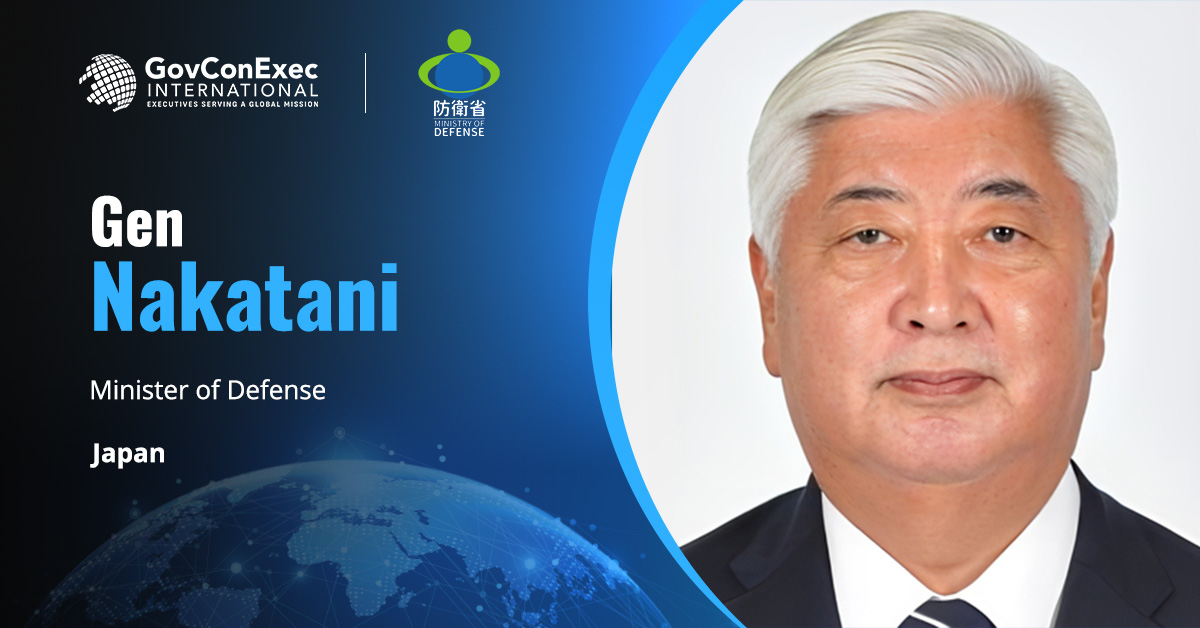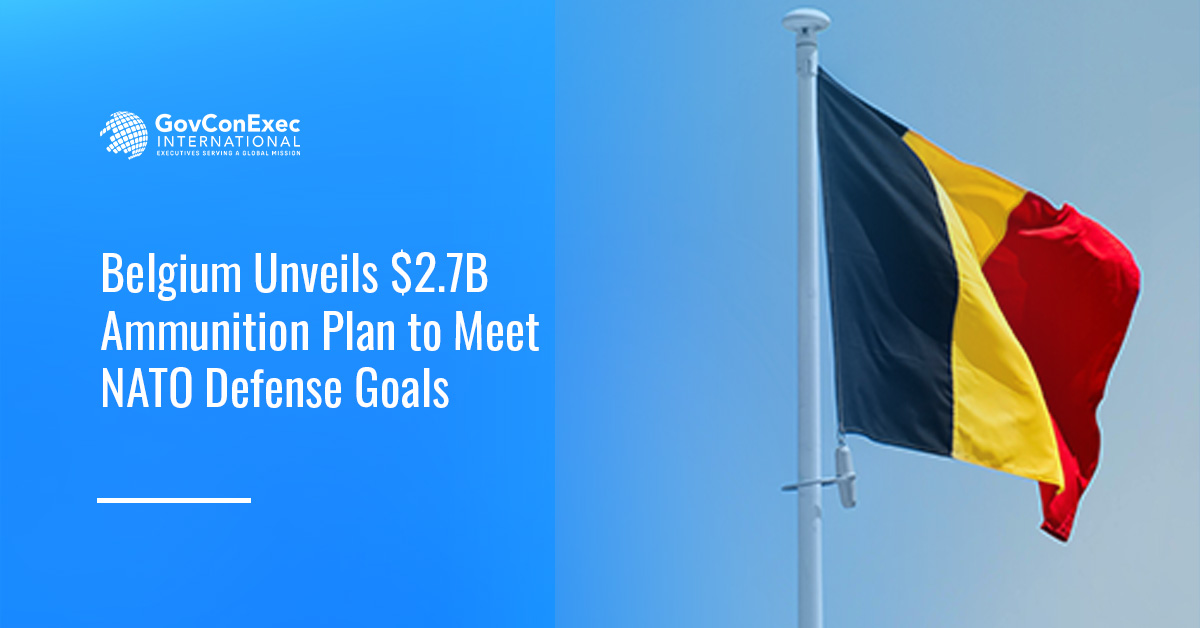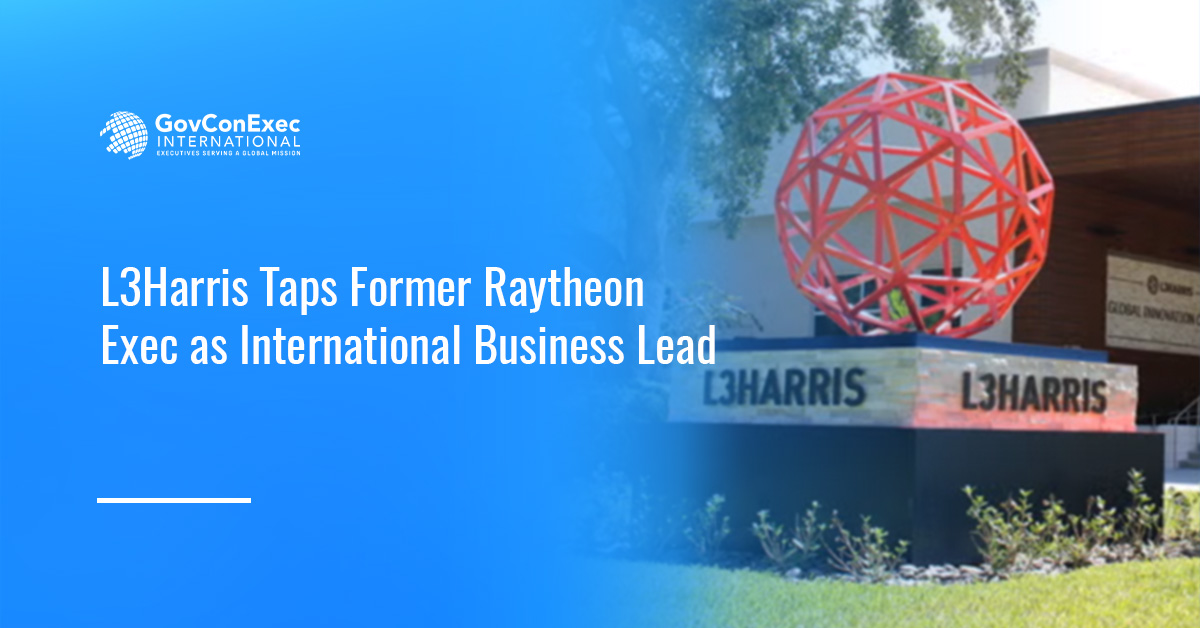Amir Emami has joined L3Harris Technologies as vice president of international business development for the company’s Integrated Mission Systems segment. He announced the move Thursday through a LinkedIn post, marking a new chapter in a career that spans defense technology, consulting and military service. Emami brings over eight years of experience from Raytheon, where he held several senior roles in...
Latest Global News

Japan’s Eye on China As It Opens Southwest Camp for Osprey Helicopters
The Japanese government has opened Camp Saga southwest of the country as the permanent base of the Japan Ground Self-Defense Force’s fleet of V-22 Osprey helicopters. The JGSDF deployed the first fleet of 17 Ospreys on Wednesday as part of Japan’s defense buildup to counter China’s increasing warship activity in the region. Join the 2025 Air and Space Defense Summit...

Belgium Unveils $2.7B Ammunition Plan to Meet NATO Defense Goals
Belgium has announced a record $2.7 billion ammunition procurement plan, the largest in its military history. According to state media, Defence Minister Theo Francken confirmed the proposal in Parliament on Wednesday and will present it to the federal cabinet next week. The package is part of the Belgian government’s Ammunition Readiness Plan 2025, which aims to replenish munitions stockpiles and...
News Briefing
Top GovCon News
Shield AI to Power Netherlands ISR Operations With UAS Offering
IonQ Named Primary Tech Provider for South Korea’s National Quantum Center
Nammo, Rheinmetall to Supply $500M Worth of Ammunition to Sweden
BlackSky Grants International Client Gen-3 Satellite Access to Support Ukraine
Parsons Wins Contract to Oversee Dubai Metro Blue Line Development
Maxar Secures $205M Contracts in Middle East, Africa for Sovereign GEOINT
Planet Labs Secures $280M Funding From Germany to Deliver Real-Time GEOINT
US OKs $510M Israeli Purchase of Boeing Munition Guidance Kits
GovConExec Interviews
Featured Stories

UK and France Forge New Defense Agreement for Advanced Weaponry Development
The United Kingdom and France have signed an agreement to increase the procurement of MBDA’s Storm Shadow cruise missiles. Known as...

Shield AI to Power Netherlands ISR Operations With UAS Offering
Shield AI has received an order from the Netherlands for eight V-BAT unmanned aircraft systems, which will benefit the Royal...

IonQ Named Primary Tech Provider for South Korea’s National Quantum Center
The Korea Institute of Science and Technology Information has named IonQ its primary quantum technology provider for South Korea’s new...

Redwire Partners With Japan Startup to Advance AI, Digital Engineering in Space
Redwire has signed a memorandum of understanding with Tokyo-based startup SpaceData to collaborate on artificial intelligence and digital engineering technologies...

Dell Technologies Issues Recommendations for EU AI Action Plan
Dell Technologies has released a strategic blueprint with recommendations for the European Union to prepare the deployment of an artificial...

BlackSky Grants International Client Gen-3 Satellite Access to Support Ukraine
BlackSky Technology has secured a new contract with an international customer that grants early access to its next-generation Gen-3 imaging...


